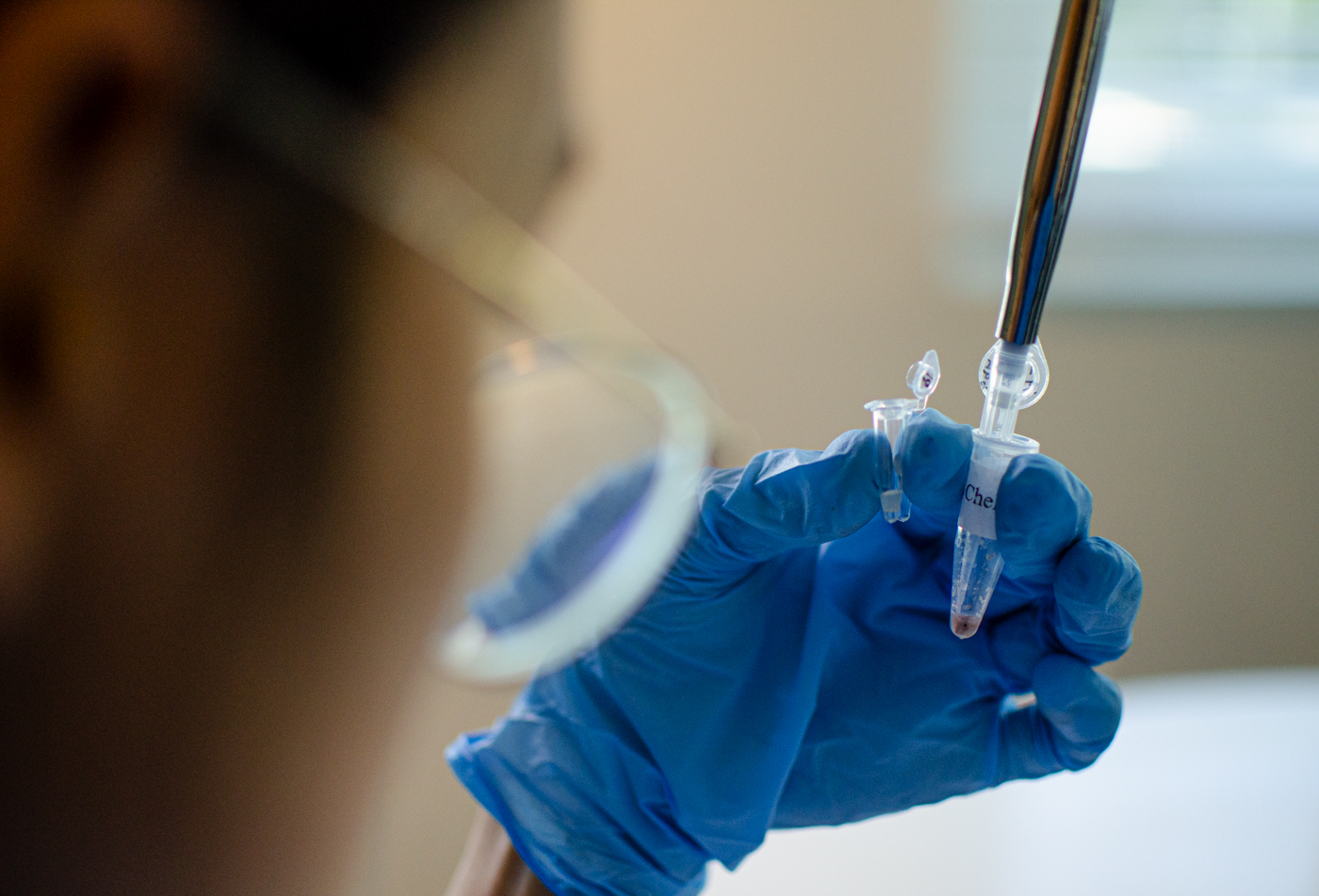UCLA study examines risk factors of developing allergic reaction from COVID-19 vaccines

A clinical trial at UCLA is currently investigating the risks of developing an allergic reaction from the COVID-19 vaccines. (Kanishka Mehra/Photo editor)
By Anna Novoselov
May 5, 2021 3:32 p.m.
An ongoing clinical trial at UCLA is investigating the risk of developing an allergic reaction from a COVID-19 vaccine.
The goal of the study is to identify the risk factors for having a systemic allergic reaction – when an allergic reaction spreads from one organ to other areas of the body – from the Pfizer-BioNTech and Moderna COVID-19 vaccines, said Maria Garcia-Lloret, a professor of pediatrics, allergy and immunology. It also provides a safe environment for patients who have a history of allergic reactions to get vaccinated, she added.
After receiving the vaccine, patients are monitored for 90 minutes by allergy physicians and receive lab tests that provide information about what internal processes occur after the patient gets vaccinated, said Garcia-LIoret, who is the principal investigator of the study.
“The vaccines that we offer have been clearly shown to be highly effective, but this extra level of care would favor the patients in which an allergic reaction is a major concern,” she said.
The samples will include about 3,400 participants total, two-thirds with a genetic predisposition to allergic reactions or a mast cell disorder – a condition where too many mast cells, which are a type of white blood cell, build up and result in allergy symptoms like inflammation and itching — and one-third with no such predisposition across the study’s 29 locations, Garcia-Lloret said.
The study began in April and is estimated to be completed in July, according to the government study record.
The UCLA Westwood location has a quota of 100, and the researchers are still recruiting for 70% of the spots, Garcia-LIoret said. Eligible people ages 18 to 69, including UCLA students and community members, can sign up on the UCLA Health website.
One-third of the participants will receive the Pfizer-BioNTech COVID-19 vaccine, one-third will receive the Moderna COVID-19 vaccine, one-sixth will receive the placebo and Pfizer-BioNTech COVID-19 vaccine, and the final one-sixth of participants will receive the placebo and the Moderna COVID-19 vaccine, according to the study record.
The study randomizes who receives either of the two vaccines or a placebo first, which will allow researchers to determine whether there is a difference between the rates of allergic reactions in the vaccine groups compared to the placebo group, said Annabelle de St. Maurice, the co-chief infection prevention officer at UCLA Health. It’s important to have a placebo group to compare to, because some people who receive the vaccine might have an allergic reaction to something other than the vaccine, she added.
The rate of anaphylaxis to the Pfizer-BioNTech vaccine is 4.7 cases per one million administered doses, while the rate for the Moderna vaccine is 2.5 cases per one million doses, according to a study published in February.
If certain risk factors for severe allergy from the vaccine are identified, then clinicians may choose to vaccinate people with those risk factors in their office rather than have them go to mass vaccination sites, de St. Maurice said.
“No matter what, every patient is getting the vaccine in this study, and we’re providing them a safe and monitored environment,” said Alexis Stephens, the clinical research coordinator for the study.
Stephens said that a lot of people, especially those with a history of allergic reactions, may fear getting vaccinated based on what they hear in the news. She hopes that the controlled environment of the trial gives these patients a sense of ease.
“This study is going to give a lot of really great findings in the world of allergy in regards to genetics and what’s happening internally in their systems when patients are reacting,” she said.


